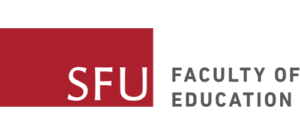Meet Members of CIRCE‘s Speakers’ Bureau
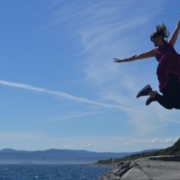
Annabella Cant
The Centre For Imagination In Research, Culture & Education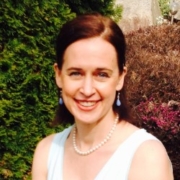
Anne Chodakowski
The Centre For Imagination In Research, Culture & EducationMichael D. Datura
The Centre For Imagination In Research, Culture & EducationKieran Egan
The Centre For Imagination In Research, Culture & EducationMark Fettes
The Centre For Imagination In Research, Culture & EducationNatalia Gajdamashko
The Centre For Imagination In Research, Culture & Education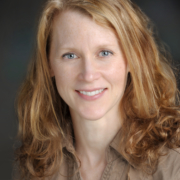
Gillian Judson
The Centre For Imagination In Research, Culture & EducationMagdalena Merbilháa Romo
The Centre For Imagination In Research, Culture & EducationKelly Robinson
The Centre For Imagination In Research, Culture & EducationKymberly Stewart
The Centre For Imagination In Research, Culture & Education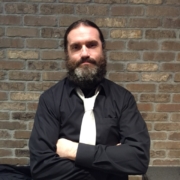
Tim Waddington
The Centre For Imagination In Research, Culture & EducationSpeaker Bios & Areas of Expertise
- Somatic Understanding
- Introduction to Imaginative Education (IE)
- Unswaddling Pedagogy from childhood to post-secondary
- Inclusion and imagination in early learning
- The image of the educator
- Wonder-full education (all levels)
- Imaginative Assessment
- Using Binaries in elementary Language Arts/ Drama
- Imaginative Planning & Teaching Using Role Play
Michael D. Datura is a certified humanities teacher, a doctoral candidate, and occasionally a poet. He has been working with the Imaginative Education Research Group (IERG) and the Centre for Imagination in Research, Culture and Education (CIRCE) for over ten years in various capacities as a graduate student, a research assistant, and—for the past five years—a sessional instructor in Imaginative Education (IE) theory and practice. He has instructed graduate level cohorts on innovative pedagogies at Simon Fraser University and Thompson Rivers University in Canada and a number of cohorts at various universities in Santiago, Chile. In 2015 he published his first book: Place, Being, Resonance: An Ecohermeneutic Approach to Education with Peter Lang Publishing. He was also a recipient of the 2015 Social Science and Humanities Research Council of Canada’s prestigious Joseph-Armand Bombardier Doctoral Scholarship.
Topics:
- Imaginative Education & Learning in Depth
- Innovative Curriculum Design & Implementation
- Philosophy & History of Education
- History of Imagination & Cultural Development
- Inquiry-Based, Project-Based, & Arts-Based Pedagogy
- Qualitative Research Methodologies
- Experiential, Ecological & Place-Based Education
- Critical Pedagogy & Social Justice
- Indigenous Education & Ways of Knowing
Dr. Kieran Egan is an emeritus professor of the Faculty of Education at Simon Fraser University. His interests have included trying to sketch a somewhat new educational theory, and also working out ways to help students and teachers to implement it in everyday classrooms. He graduated from London University with a B.A. in History, and from Cornell University with a PhD in Education. He is now retired and writes poetry or makes pottery; one of those anyway.
Topics:
- Imaginative Education: Kinds of Understanding & Cognitive Tools
- Learning in Depth
- The History of Education
- The role of imagination in learning and development
- Orality & History
- Imaginative teaching and learning and the BC curriculum
- Imagination in place-based and nature-based education
- Imagination in language teaching and multilingual schooling
- Indigenous worldviews and perpectives in imaginative curriculum design
Dr. Natalia Gajdamaschko is a Teaching Professor and the Director of Undergraduate Studies at the Faculty of Education, Simon Fraser University (Canada). A Vygotskian psychologist, trained in Moscow, Russia, she has served as a visiting research fellow at the Carl Vinson Institute of Government and the Torrance Center of Creativity at the University of Georgia (Athens, GA, USA). She also was a visiting scholar at the University of Connecticut (USA) as a recipient of an advanced scholars award from the International Research and Exchange Board (IREX). She has presented papers at numerous international conferences if the fields of educational theory, educational psychology, and gifted education.
Topics:
- Vygotsky and creativity
- Vygotsky and the development of imagination
- Vygotsky’s cultural-historical theory of child development
Dr. Gillian Judson is an Assistant Professor in the Faculty of Education at Simon Fraser University. She teaches in Educational Leadership and Curriculum and Instruction programs. Her current research looks at the role of imagination in leadership. Dr. Judson’s previous scholarship examines imagination’s role in learning (K-post-secondary), imaginative and ecological teaching practices (PreK through post-secondary), and imaginative assessment in the post-secondary context. Her latest books are entitled Imagination and the Engaged Learner: Cognitive Tools for the Classroom. (Egan & Judson, 2016), Engaging Imagination in Ecological Education: Practical Strategies For Teaching (Judson, 2015), and A Walking Curriculum (Judson, 2018/2019). (Website & TedX Talk)
Topics:
- The Imagination’s Role In Teaching & Learning (PreK-Higher Education)
- Imaginative Education in Theory/Practice: A Cognitive Tools Approach To Teaching (PreK-Higher Education)
- Imaginative Ecological Education & the Walking Curriculum
- Pedagogy For Place-Making & Activeness: Engaging The Body In Local Natural/Cultural Contexts
- Inquiry-Based Learning: The Learning In Depth Program
- The Imagination’s Role In Educational Leadership
Magdalena Merbilháa Romo is an historian, writer and educator. She completed her M.A. at Kingston University, in London. She is on the Advisory Board for the Centre for Imagination in Research, Culture & Education (CIRCE)and is the Director of the Red Cultural Net. She has studied and given talks on imagination in Canada, Mexico and Chile. She teaches at Finis Terrae University, in Santiago, Chile, and supervises their Masters program in Creativity and Innovation in Education. As an historian of European history, she teachers and travels frequently on the topic. She offers courses on fantasy and Tolkien and has published several articles on the topic.
Topics:
- Imagination and its importance for human beings
- Recovering Humanities through Imaginative Education (IE)
- Imagination and happiness
- Storytelling
- Teaching as storytelling
[Presentations in Spanish & English]
Kelly Robinson is a current secondary English teacher and doctoral candidate. Her scholarly interest is in Education for Reconciliation and Indigenous Education, and arts-informed research. She has worked as Faculty Associate teaching teacher candidates how to become Imaginative Education teachers, and as a cohort facilitator and site assistant for graduate level Imaginative Education students with Simon Fraser University. She has also contributed to the Imaginative Education Research Group (IERG) over the years.
Topics
- Imaginative Education–Curriculum Design and Pedagogy
- Imaginative Teacher Education—Praxis and Relationality
- Indigenous Education and the BC Curriculum
Topics:
- Media Education
- Children and Media Culture
- Imaginative Education (Lesson Planning and Teacher Training)
- Qualitative Research Methodologies (Auto-Ethnography and Metissage)
Dr. Tim Waddington possesses nearly 30 years of experience as a public school and university educator, and advocate for children and youth. With advanced degrees in Education Leadership and the Philosophy of Education, Tim infuses a rich and creative understanding of Imaginative Education into both his teaching and research. In addition to his work with CIRCE and imaginED, Tim currently holds a position of Lecturer in the Faculty of Education at UBC. Tim leads our work on Imaginative Historical Inquiry, with particular interest in Romantic, Philosophic and Ironic Understandings, and existential outcomes for students and teachers alike.
Topics:
- Understanding Inquiry as an Instructional Model
- Imaginative Historical Inquiry
- Imaginative Education
- Philosophic and Ironic Understandings
- Relational Pedagogy
- Education as the Practice of Freedom
